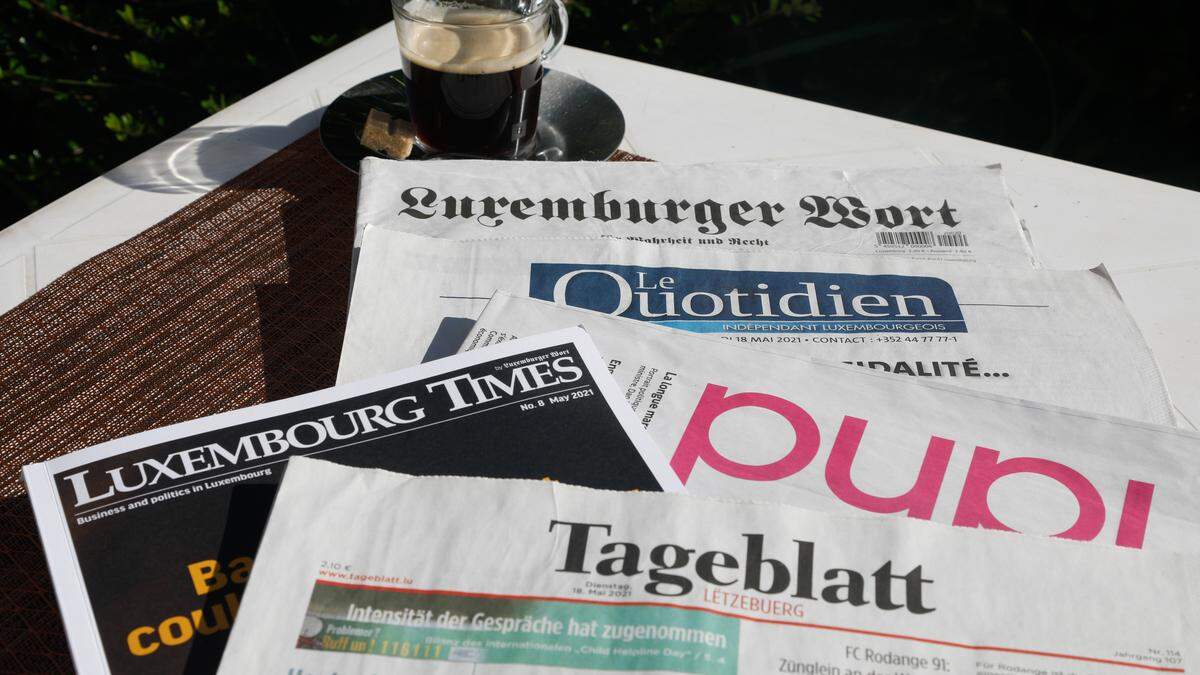Luxembourg slipped from 11th to 13th place out of 180 countries worldwide assessed in the World Press Freedom index, as the situation for reporters around the globe deteriorated and conditions for journalism are now considered “good” in only a handful of countries.
The index assesses conditions for journalism based on five indicators: political, economic, legislative, social and security.
While it improved on some indicators, Luxembourg saw a drop in the economic indicator in the 2025 ranking published on Friday, echoing a global trend.
“Although physical attacks against journalists are the most visible violations of press freedom, economic pressure is also a major, more insidious problem,” the report states. The economic indicator stands “at an unprecedented, critical low” overall. As a result “the global state of press freedom is now classified as a ‘difficult situation’ for the first time in the history of the index.”
In 160 out of the 180 countries assessed, media outlets achieve financial stability “with difficulty” or “not at all.”
Economic, political interests
Norway, Estonia, the Netherlands, Sweden, Finland, Denmark and Ireland were the only countries where the conditions for journalism were considered “good” in the report.
Norway in a survey by the Reuters Institute for the Study of Journalism in 2024 was the country with the highest percentage of people paying for online news at 40%. In Sweden, 31% of people paid for news and in Finland 20%.
No such country data is available for Luxembourg, with only 20 locations included in that survey. However, in the World Press Freedom Index, Luxembourg’s economic indicator slipped from 13th place last year to 17th in the 2025 edition.
“The leading daily newspapers have seen a decline in subscriptions and advertising in recent years,” the report states. “Media outlets, numerous given the size of the national market, remains under pressure and the Grand Duchy’s small size encourages conflicts between media’s work and various economic interests.”
Luxembourg retained its number 1 spot for security and improved its social indicator from 10th to 7th place, with journalists enjoying one of the highest levels of respect from the public in the European Union, the report states.
The legislative indicator also improved, even though Luxembourg still does not have laws guaranteeing access to public information. A bill is making its way through parliament.
Under current legislation journalists can be refused access to a wide variety of documents. While they can then file a request to see them with the Commission on the Access to Documents (CAD), authorities must not follow the CAD’s opinion, even if it sides with the reporter. The reporter is then free to seek a resolution in court.
In the political indicator, Luxembourg’s score dropped from 87.74 to 83.34 points, slipping from 9th to 12th place in the ranking. “For the most part, the media operate independently and journalists enjoy plenty of freedom from political power,” the report states. However, “some subordination” to political interests persists.
Also read:Europe bigger Trump target ‘than people realise’
‘Disastrous’ situation in Gaza
Reporters Without Borders (RSF), which publishes the index, assessed the conditions for journalism as “very serious” in 41 countries, up from 35 last year. Iran, Syria, China, North Korea and Eritrea make up the bottom of the list.
There have been mass closures of media outlets in 34 countries, with news outlets shutting down due to economic hardship in nearly a third of countries globally.
When news media are financially strained, they are drawn into a race to attract audiences at the expense of quality reporting
Anne Bocandé
RSF editorial director
“The situation in Palestine (163rd) is disastrous,” the report said. “In Gaza, the Israeli army has destroyed newsrooms, killed nearly 200 journalists and imposed a total blockade on the strip for over 18 months.”
The US (57th, down two places) is leading the economic depression in the news landscape. “Vast regions are turning into news deserts,” the report states. In addition to economic pressures, the press operates in an increasingly hostile environment with the country dropping 28 places in the social indicator.
“When news media are financially strained, they are drawn into a race to attract audiences at the expense of quality reporting, and can fall prey to the oligarchs and public authorities who seek to exploit them,” said Anne Bocandé, RSF editorial director, in a statement. “The media economy must urgently be restored to a state that is conducive to journalism and ensures the production of reliable information, which is inherently costly.”
